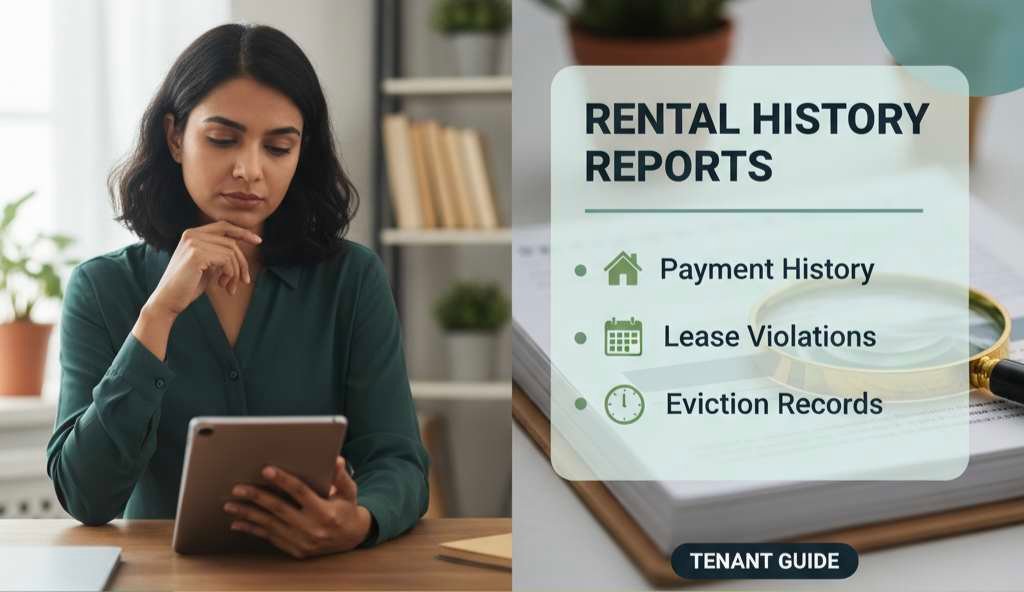As a tenant, understanding your rental history report is crucial. This report plays a significant role in the application and screening process when renting a new home. But what exactly does it entail, and why does it matter so much?
What is a rental history report?
A rental history report is essentially your rental resume. It provides landlords and property managers with a detailed account of your past rental experiences. This includes the addresses of properties you’ve rented, length of stay, rental rates, and contact information for past landlords. The report also highlights any late payments, damages, or evictions, providing a comprehensive picture of your reliability as a tenant.
What’s included in a rental history report?
Your rental history report typically includes:
- Previous addresses and rental properties: A timeline of your rental residences.
- Landlords’ contact information: Details to verify your rental history.
- Rental rates and occupancy dates: Insight into financial stability during each tenancy.
- Rent payment history: Records of any late payments or debts.
- Damages or maintenance issues: Feedback from previous landlords on any property issues you were responsible for.
- Lease violations or evictions: Recorded breaches or evictions during tenancies.
- Credit report information: Your credit score and any notable marks indicating financial health.
Factors affecting your rental history
Several factors can impact your rental history, influencing potential landlord decisions:
- Missed payments: Consistent, on-time rent payments build a positive rental history. Late payments can be a red flag.
- Lease violations: Adhering to lease terms is crucial. Violations like unauthorized subletting can negatively impact your report.
- Property care: Failure to report damages or maintain the property may lead to negative entries.
- Evictions: Being evicted is a significant negative mark that can hinder future applications.
Checking your free rental history report
Under the Fair Credit Reporting Act, you can access one free rental history report annually. This report lets you verify the information before a landlord views it. Ensure the details, such as occupancy dates and payment history, are accurate. If any discrepancies exist, prepare to address them in your rental application to avoid raising concerns.
Addressing inaccuracies in your report
If you discover errors in your rental history report, don’t panic. Here’s how you can correct them:
- Contact the reporting company: Submit your complaint in writing, supported by evidence.
- Review by the agency: The reporting agency will investigate and resolve issues or maintain their original report.
- Add a note: If discrepancies remain unresolved, you can attach a note providing context for future reviewers.
Improving your rental history
A less-than-perfect rental history can be improved with consistent efforts:
- Timely payments: Automate rent payments or set reminders to avoid late payments.
- Communicate openly: Maintain transparent communication with landlords, especially when financial difficulties arise.
- Property upkeep: Promptly address maintenance issues to avoid disputes.
- Adhere to lease terms: Respect all lease stipulations to maintain a positive relationship with your landlord.
Using your rental history to your advantage
A strong rental history can significantly enhance your appeal as a tenant:
- Highlight positive references: Include endorsements from previous landlords.
- Explain negative marks: Provide context for any issues in your report during applications.
- Leverage rent reporting services: Services that report your on-time payments can improve your credit score.
Why rental history reports matter
Ultimately, a rental history report helps landlords determine if you’re a suitable tenant. They seek assurance of your reliability, trustworthiness, and financial stability. Ensuring that your rental history report is accurate and presenting it positively can open doors to your ideal rental property.
In conclusion, understanding and managing your rental history report are essential steps in securing your desired rental. By maintaining a positive rental profile and addressing any discrepancies proactively, you can enhance your appeal to prospective landlords and increase your chances of renting your dream home.



